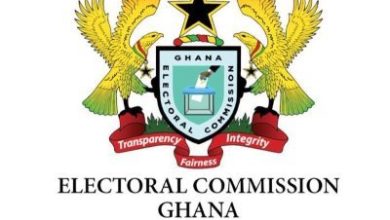Understanding the 2025 WASSCE Grading System: A Breakdown for Students and Parents

The West African Senior School Certificate Examination (WASSCE) grading system for 2025, administered by the West African Examinations Council (WAEC), remains a critical tool for assessing the academic performance of Senior High School students across Ghana and the West African sub-region. Below is a clear outline of the grading structure, which evaluates candidates’ performance in each subject based on percentage scores, as shared widely across educational platforms and verified by WAEC’s official guidelines.
2025 WASSCE Grading System
The grading system assigns letter grades and corresponding remarks based on percentage marks scored in each subject. Here is the breakdown:
A1: 75-100% (Excellent) – Represents outstanding performance, typically required for competitive university programs like medicine or engineering.
B2: 70-74% (Very Good) – Indicates strong mastery, often qualifying candidates for admission into reputable tertiary institutions.
B3: 65-69% (Good) – Reflects solid performance, meeting entry requirements for many university courses.
C4: 60-64% (Credit) – A commendable score, widely accepted for diploma programs and some university admissions.
C5: 55-59% (Credit) – Denotes satisfactory performance, sufficient for entry into technical institutes and certain degree programs.
C6: 50-54% (Credit) – The minimum credit score, often the baseline for tertiary admission in less competitive courses.
D7: 45-49% (Pass) – A pass grade, but typically insufficient for university admission in Ghana.
E8: 40-44% (Pass) – A marginal pass, rarely accepted for further education without supplementary exams.
F9: 0-39% (Fail) – Indicates failure, requiring candidates to retake the exam to improve their scores.
Key Context and Application
The WASSCE grading system evaluates both school candidates (SC) and private candidates (PC), with results combining continuous assessment (30%) and final exams (70%) for school candidates, while private candidates rely solely on exam performance. Grades A1 to C6 are considered credit passes, with A1 to B3 being the most competitive for Ghanaian universities, where admission cut-offs often range from aggregate 6 to 24 (based on a candidate’s best six subjects, including core subjects like English, Mathematics, and Integrated Science).
In 2025, WAEC reported that 465,627 candidates sat for the WASSCE (SC), with a noted improvement in pass rates: 73.2% of candidates achieved A1-C6 in English, 68.9% in Mathematics, and 70.4% in Integrated Science, reflecting the impact of enhanced STEM programs under the Free SHS policy. However, challenges persist, as seen in cases like Kpetaah Rejoice, whose withheld Mathematics result led to an erroneous aggregate of 54, blocking her preferred SHS placement.
Implications and Advice
For students aiming for top-tier institutions like the University of Ghana or KNUST, securing A1 or B2 in core and elective subjects is crucial, as cut-off points for programs like law (aggregate 7) or pharmacy (aggregate 8) remain stringent. The Ghana Education Service advises candidates to verify results promptly via WAEC’s online portal and address withheld results—often due to suspected malpractices, affecting 1,333 candidates in 2025—within 30 days to avoid admission delays.
Parents and students are encouraged to consult with school counselors or contact WAEC directly at their regional offices for clarification on results or grading disputes, especially as tertiary admissions deadlines loom in November 2025.







